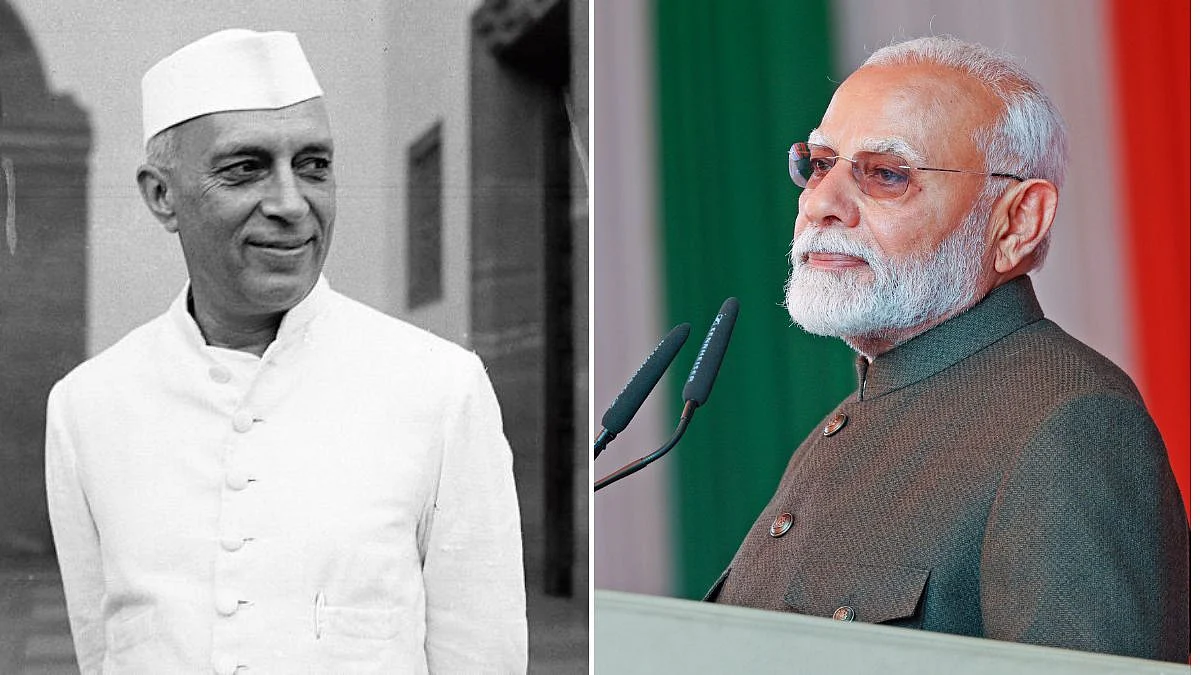No one expected the infamy of the Kilvenmani massacre on Christmas Day of 1968 when Tamil Nadu landlords or their agents slaughtered 44 landless Dalit women and children whose families had struck work ever to be repeated. But the May 28 murder of three men of the Devendrakula Vellalar Scheduled Caste community in Kachanathan village, also in Tamil Nadu, by 20 Agamudayars (listed as Other Backward Class) wasn’t very different. The difference is that Dalits are no longer the only victims of bigotry and brutality. Discrimination is spreading to other groups, too, as authority looks the other way.
Behind the showcase, with which India tries desperately to dazzle the world, lies a pestilential, odoriferous and suppurating reality. The dream of “Digital India” has been foisted on people who cannot count. They can’t walk either but are ordered to pretend to run. The mind of India remains mired in ignorance and superstition while our leaders, who are equally unenlightened except in the mechanics of seizing and operating power, vest myth and legend with far-fetched significance involving plastic surgery and artificial insemination. The scientific temper Jawaharlal Nehru sought to instil in people is fading every day.
It isn’t fashionable to quote Churchill but it is apposite to do so about those who call themselves Dalits nowadays because Mahatma Gandhi’s term “Harijans” was an insult. The arch imperialist British politician was probably more realistic when he described Dalits at a meeting in London’s Albert Hall on March 31, 1938 as “A multitude as big as a nation, men, women and children deprived of hope and of the status of humanity”. Churchill went on to, “Their plight is worse than that of slaves, because they have been taught to consent not only to a physical but to a psychic servitude and prostration…It will be a sorry day when the arm of Britain can no longer offer them the protection of an equal law.”
The law is more equal now than in British times. Its implementation is not. Otherwise, the Agamudayar butchers of Kachanathan village would not have been able to switch off the street lights, plunging the entire village into darkness, before setting to their deadly work with scythe, axe and hatchet. Nor would they have succeeded in setting fire to and destroying several Devendrakula Vellalar huts during the caste riots of 1957.
Enmity peaked some years later when one of the Agamudayars allegedly seized a plot of land that belonged to another Kachanathan villager. The four Agamudayar families are said to own several of the village’s 240 acres of farm land. They are accused of controlling water channels, often blocking them to deny the villagers water, and of locking up the pump sets when the river dries up.
Given the traditional power of the caste hierarchy, Agamudayar landowners are able to force Devendrakula Vellalar families to work in their fields for less than mandatory wages. The worst form of abuse is to harass young women. When Devendrakula Vellalar women go to the water to bath, Agamudayar men will often stand around almost in the nude and yell lewd suggestions. This is part of a countrywide provocation. Inter-caste romance merits the most severe punishment. Riding a horse, sitting in a temple, not showing proper respect to their caste superiors are all punishable offences in the interior. On one occasion, when Dalit and Scheduled Tribe field hands in Bihar and Uttar Pradesh demanded proper wages from upper caste villagers, they were at once branded Naxalites.
In tacitly upholding the social and hierarchical superiority of one group of Indians, the men at the top automatically downgrade all others — Dalits, Muslims, Tribals, Christians and easily identifiable Mongolian North-easterners — who are not caste Hindus. Caste — and all other forms of prejudice — makes nonsense of our vaunted claim of being the world’s biggest democracy. Kachanathan villagers say that the May 28 murderers are protected by a former panchayat president who had forced them to vote for him and made them take oaths on milk — the local custom — in front of the temple. In most of these situations, whether in Tamil Nadu, Bihar or Uttar Pradesh, the police sides with the power elite. After the 1968 Kilvenmani Christmas Day massacre, the accused landlords were let off on the grounds that men of their position could not be expected to engage in such acts; they would hire others to do their dirty work for them.
The tragedy is that instead of receding into a dim colonial background, such abuses are multiplying throughout the country. At the risk of offending our more patriotic readers, I must acknowledge that this, too, Churchill had foreseen. “To abandon India to the rule of the Brahmins” he said in the same Albert Hall speech, using Brahmins for all upper caste Hindus, “would be an act of cruel and wicked negligence. It would shame for ever those who bore its guilt. These Brahmins, who mouth and patter the principles of Western Liberalism, and pose as philosophic and democratic politicians, are the same Brahmins who deny the primary rights of existence to nearly sixty millions of their own fellow countrymen whom they call ‘untouchable’, and whom they have by thousands of years of oppression actually taught to accept this sad position. They will not eat with these sixty millions, nor drink with them, nor treat them as human beings. They consider themselves contaminated even by their approach. And then in a moment, they turn round and begin chopping logic with John Stuart Mill, or pleading the rights of man with Jean Jacques Rousseau.”
It’s a related irony that the scientific achievements of which our rulers are so proud play a large part in promoting violence. In another age, the Agamudayar assassins would have had to extinguish one oil lamp after another before starting their gruesome work; now they can pull a single switch and Kachanathan is in the dark. Rumour disseminated information in 1857; now there is the ubiquitous cell phone with texting and WhatsApp facilities. The illiterate can still send and see videos. Real or imaginary reports of someone handling beef, of an inter-religion marriage or a Dalit daring to sit in a temple can be flashed across the land in no time. The WhatsApp circulation in 2013 of a two-year-old lynching in Pakistan fanned the flames of communal violence in Muzaffarnagar, Uttar Pradesh, in which at least 62 people (mainly Muslim) were killed and more than 50,000 displaced.
Now that Gujarat has passed a law punishing cow slaughter with 14 years in jail, we can expect more travesty of justice. In its determination to create a majoritarian identity for itself, India is hurtling down into the Dark Ages.
Sunanda K Datta-Ray is the author of several books and a regular media columnist.










